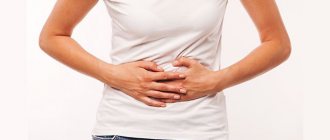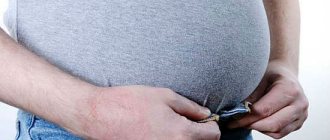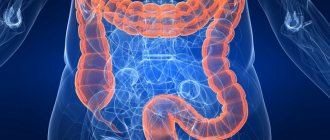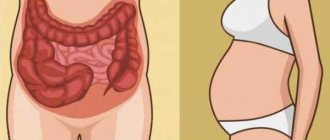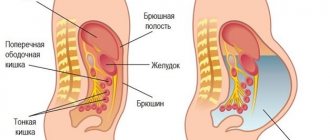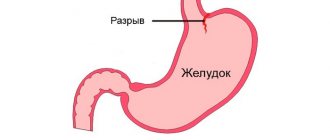Diet option for intense gas formation
You can create a menu based on the approximate dietary options presented in the table.
| Eating | Examples of dishes |
| first breakfast | buckwheat, oatmeal, rice porridge (optional). Coffee with a piece of hard cheese |
| lunch | biscuits, wheat croutons, banana, papaya, kiwi |
| dinner | light fish or chicken soup, cucumber salad, vegetable puree with steamed meat (chicken, fish). Fruit drink or compote |
| afternoon tea | yogurt, low-fat cottage cheese, baked apples, low-butter cookies. Juice, green tea |
| dinner | potatoes (boiled, mashed) with boiled (steamed) fish. Stewed (boiled, steamed) vegetables with chicken, boiled beet salad. Herb tea |
| a couple of hours before bedtime | drinking yogurt (preferably without fruit additives) |
Don't be afraid to experiment with a variety of dishes. The diet menu can be delicious. The main thing is not to go beyond acceptable foods and introduce into your diet foods rich in beneficial microorganisms.
When experiencing flatulence, you cannot ignore the rules of a healthy diet. The process can become chronic with continuous fermentation and rotting in the intestines. The body will be in a state of constant intoxication. This contributes to the exacerbation of diagnosed diseases, and threatens the acquisition of new pathologies of the digestive tract. In addition, disrupted microflora is a direct path to vitamin deficiency and decreased immunity.
Following the principles of a proper diet will help you get rid of problems with increased gas formation and improve your standard of living.
For diarrhea
If a person experiences flatulence during the development of diarrhea, then it should be considered as a symptom indicating the following pathologies:
Enterocolitis with allergic etiology
With this disease, the mucous membranes of the main intestinal sections become inflamed in patients. The disease can be provoked by the consumption of foods to which the immune system gives an acute reaction. It is worth noting that each patient has a reaction to “their” product. After a meal, painful sensations arise almost instantly, which are localized in the peritoneal area.
In parallel, the following symptoms develop:
- vomit;
- bloating;
- diarrhea, in which impurities of mucus with a glassy structure are detected in liquid feces.
Intestinal dysbiosis
Dysbacteriosis. When this disease occurs in a patient’s intestines, pathogenic microflora begins to dominate over beneficial bacteria. As a rule, people encounter this problem due to long-term use of medications, in particular antibiotics. Eating low-quality food can lead to intestinal dysbiosis, along with which pathogenic microorganisms penetrate the gastrointestinal tract. Intestinal infections and pathologies such as hepatitis, gastritis, and pancreatitis can also provoke the disease.
Characteristic symptoms may indicate intestinal dysbiosis:
- defecation processes are disrupted (liquid feces acquire a foamy consistency);
- an unpleasant taste appears in the mouth;
- severe nausea;
- single or repeated vomiting;
- the stomach is swollen;
- there are sharp painful sensations in the peritoneum;
- signs of intoxication may appear;
- food allergies occur to foods that were previously constantly present in the diet.
Helminthiasis
Eggs and larvae of helminths can enter the human body in a variety of ways.
Even with personal hygiene and all the precautions recommended by experts, people may one day discover an unpleasant presence. Most often, parasites choose the gastrointestinal tract, in particular the intestines, as a place of permanent dislocation
Beginning active life, worms secrete a large amount of toxic substances that destroy beneficial microflora.
People can suspect helminthic infestations based on characteristic symptoms:
- your head starts to feel dizzy;
- rapid weight loss is observed with a good appetite;
- flatulence occurs;
- defecation processes are disrupted;
- fatigue increases;
- the skin begins to dry out, etc.
Irritable bowel syndrome
This syndrome occurs against the background of thinning of the mucous membranes in the intestines. To date, modern medicine has not been able to establish the exact causes of IBS development. But, most experts find a connection between the syndrome and stressful situations.
This pathology is accompanied by characteristic symptoms:
- defecation processes are disrupted, in which diarrhea gives way to constipation;
- painful sensations occur in the peritoneal area;
- gas formation increases.
Cirrhosis
This disease begins to develop due to the replacement of liver cells with connective tissues.
Its development can be suspected based on the following clinical manifestations:
- performance decreases;
- weakness occurs;
- there is a feeling of heaviness in the stomach;
- the stomach begins to swell;
- the skin becomes yellowish;
- rapid weight loss is observed;
- the skin of the feet and palms turns red;
- joint pain occurs;
- ascites develops;
- Internal bleeding begins.
Symptoms
Typical symptoms of the disease are:
- pain in the upper abdomen;
- discomfort in the stomach - the appearance of gurgling and rumbling sounds, a feeling of heaviness;
- belching;
- flatulence;
- frequent hiccups;
- a burning sensation in the chest caused by heartburn;
- feeling of nausea and vomiting;
- lack of appetite;
- disruption of the lower part of the digestive tract in the form of diarrhea or constipation.
Advice! In addition, patients note a general disturbance of well-being, in particular increased irritability, weakness, and sleep disturbances.
Dysbacteriosis and flatulence
The issue of dysbacteriosis and flatulence deserves special consideration because an imbalance in the obligate microbiological environment of the large intestine is one of the key causes of pathological gas formation.
The formation of intestinal gases is a natural, biochemically determined process, in which colonies of microorganisms living in the intestine that perform enzymatic functions take part. These are gram-positive bifidobacteria (Bifidobacterium), lactobacilli (Lactobacillus), gram-negative bacteria - Escherichia coli (Escherichia coli), Eubacteria, Fusobacteria, as well as various types of bacteroids (Acidifaciens, Biacutis, Distasonis, Gracilis, Fragilis, Ovatus, Putredinis, etc. ).
In addition, the normal microbiological climate of the intestine helps to maintain conditionally pathogenic gram-positive bacteria of the genus Peptostreptococcus anaerobius - peptostreptococci Clostridia, enterobacteria Enterobacter aerogenes, Klebsiella, anaerobes of the family Propionibacterium (propionobacteria), etc.
Dysbacteriosis is expressed, on the one hand, in the disappearance or significant reduction in the number of bifidobacteria and lactobacilli and E. coli. On the other hand, the proportion of opportunistic bacteria is increasing. If dysbiosis and flatulence occur, this means that:
- due to the lack of bifidobacteria, the intensity of enzymatic parietal digestion in the small intestine decreases, the volume of undigested carbohydrates and amino acids and unabsorbed nutrients increases;
- deficiency of lactobacilli leads to alkalization of the intestinal environment, and, therefore, the activity of putrefaction processes increases, accompanied by the release of hydrogen and methane;
- the breakdown of lactose in the intestine, which is facilitated by E. coli, worsens.
One should take into account the fact that if all the gases formed during the digestion of food exited the intestines through the rectum, then this would not be 600-700 cubic meters. cm, and on average no less than 25,000-40,000 cubic meters. cm per day...
But, fortunately, the intestinal microflora contains not only bacteria that produce carbon dioxide, nitrogen, hydrogen and methane, but also microorganisms that absorb these gases. And when the biological balance of their symbiotic connections is disturbed, we talk about the occurrence of flatulence.
Tablets for bloating and increased gas formation
To eliminate bloating and gas formation, the following drugs are prescribed:
- adsorbents - drugs in this group absorb various types of bacteria and the toxins they produce. The most common drugs among adsorbents are Activated Carbon, Polysorb, Diosmectite, Smecta, Polyphepan;
- prokinetics - improve intestinal motility and promote the removal of gases. These include Passazhix and Motilium;
- antispasmodics – have a relaxing effect on the smooth muscles of the intestine, eliminate pain. Antispasmodics include drugs No-shpa, Drotaverine, Papaverine (suppositories and tablets), Pantestin, Dolce;
- defoamers - reduce gas pressure on the intestinal walls, freeing it from toxins. These include Espumisan, Kolikid;
- herbal remedies - restore intestinal motility, remove gases, help relieve cramps and pain due to bloating;
- Enzyme preparations – promote the breakdown of fats and fiber, thereby improving the absorption of nutrients. This group of drugs includes Festal, Pancreatin and Creon.
A gas tube is often used to remove gases in infants and bedridden patients. Its frequent use can be addictive, as a result of which the body is not able to independently remove accumulated gases.
In addition, if the gas tube is used carelessly, there is a risk of damaging the intestinal wall and causing bleeding.
If cutting or acute pain does not leave the patient even after defecation, suspicions arise about the presence of serious diseases, such as:
- acute form of appendicitis (accompanied by a burning sensation in the right side);
- intestinal obstruction;
- rupture of a cyst in the ovary;
- peritonitis.
In this case, you should immediately call an ambulance
Bloated stomach due to gastritis
Flatulence with gastritis should be treated comprehensively. The complex of drugs includes painkillers (Gastratcid, Phosphalugel) and sorbents that remove toxins (Activated Carbon, Smecta, Enterosgel). To normalize the production of gastric juice, the drugs Misoprostol and Cytotec are prescribed. In some cases, the patient is prescribed antibiotics - Amoxicillin and Clarithromycin.
Flatulence with stomach and duodenal ulcers
In cases of excessive gas formation caused by peptic ulcers, drugs are prescribed - anticholinergics, which reduce the production of hydrochloric acid and enzymes that corrode the mucous membrane of the digestive organs. These include Pirenzepine, Omeprazole, Vikair, Gastal. De-nol and Bismofalk have an antiseptic effect.
Bloating in chronic colitis
For colitis accompanied by bloating and gas formation, corticosteroids are prescribed, which have an anti-inflammatory effect. This includes medications Prednisolone, Hydrocortisone. In case of ulcerative colitis, immunosuppressants (Cyclosporine, Azathioprine, Acipol) are prescribed. Mezim-Forte and Creon preparations help compensate for the lack of digestive enzymes.
Flatulence with pancreatitis
To restore the digestive process during pancreatitis, enzyme preparations that do not contain bile acids are used. These include Mezim-Forte, Creon and Pancitrate. No-shpa or Duspatalin will help relieve abdominal pain. Phosphalugel and Maalox promote gas release during pancreatitis. To reduce the activity of the pancreas, Somatostatin is prescribed.
Bloating due to viral hepatitis
For this type of pathology, interferons should be used. They have immunomodulatory and antiviral effects. To restore liver cells, hepatoprotectors are prescribed, such as Geparsil, Silymarin-Hexal, Silibor, Darsil.
Spasms due to biliary dyskinesia
Papaverine and No-shpa will help relieve spasms during dyskinesia. If the tone of the gallbladder is reduced, the drug Cyqualon is prescribed. Drinking mineral waters Essentuki and Naftusya, as well as following diet No. 5, will help normalize the functioning of the gallbladder.
Bloating due to dysbacteriosis
In this case, the doctor prescribes antibacterial drugs that suppress the growth of pathogenic bacteria, such as Bifikol and Enterol. Prebiotics Lactusan and Inulin, and probiotics Bifiform and Normoflorin will help restore the intestinal microflora. To remove gases and toxins, Polyphepan and Zosterin are prescribed.
Treatment
You don't have to take medication to get rid of bloating and gas. Sometimes it is enough to adjust your diet, and this unpleasant symptom will go away on its own. In cases where flatulence hides a more dangerous pathology, it is necessary to carry out etiotropic treatment, which will be aimed at eliminating the cause. Treatment of gas formation and bloating can be either medicinal or surgical.
Nutrition tips
In order to prevent heaviness and bloating after meals in a healthy person, it is necessary to exclude from the diet those foods that cause severe gas formation.
If a patient experiences bloating after a heavy meal, then this is the cause and treatment. To eliminate this phenomenon, it is necessary to reduce the amount of food consumed at one time.
In addition, it is worth eating in small portions so that it mixes well with gastric juices and digestive enzymes. The best option would be to divide the entire daily diet into 5-6 meals. It is not recommended to eat at night, since in a horizontal position peristalsis is weakened and food stagnates in the intestines, causing bloating.
The patient is also advised to take a walk after eating. Moderate physical activity after meals has a beneficial effect on the state of the digestive tract, as it enhances the contractility of intestinal smooth muscles.
Drug treatment
Treatment should be aimed at eliminating the cause of persistent bloating.
When various diseases are detected, patients are prescribed a special treatment regimen, which must necessarily include the following groups of drugs:
- Enzyme preparations. These pharmacological agents help compensate for enzyme deficiency in pathologies of the stomach, duodenum and pancreas. There is a fairly large selection of drugs belonging to this group, which are designed to suit any consumer’s budget. It is worth noting the fact that a high price does not always indicate the high effectiveness of the drug.
- Enterosorbents. Most sorbents help remove gases from the body. These drugs can be available in tablet form or as oral solutions. The simplest representative of this group of drugs is activated carbon, which can be used not only for poisoning, but also for bloating.
Prokinetics
It is extremely important to normalize peristalsis, since gases will pass away naturally. This effect can be achieved using prokinetics, which include Metaclopramide, Silancetron, as well as their commercial analogues
Preparations for normalizing intestinal microflora. Restoring normal levels of bifidum and lactobacilli helps to significantly reduce the intensity of gas formation, especially in combination with diet. The most commonly prescribed are live yogurts, which are sold in the form of powders or solutions.
In addition to the use of medications, patients are prescribed a gas tube. It is inserted 10-15 cm into the rectum, which helps relieve bloating and gas. The installation of a gas outlet tube should be carried out exclusively by a medical professional, since if the insertion technique is violated, the rectum can be damaged.
In some cases, treatment for bloating may be surgical. The main indications for surgery, which are the cause of flatulence, are considered to be obstruction and the presence of malignant tumors of the digestive system. In such a situation, surgical treatment is aimed at eliminating the cause of obstruction. In case of cancer or necrotic changes in the intestinal wall, extensive operations are performed, during which a section of the intestine is removed.
The size of such an area depends on the extent of the pathological process.
Prevention
To prevent flatulence from interfering with normal life, it is necessary to adhere to simple preventive measures. To do this you will need:
- Monitor your diet and exclude from your diet foods and drinks that cause fermentation in the intestines.
- Spend more time outdoors, it’s good to take walks in the evenings on a daily basis, which should be at least one hour.
- Physical activity is a great way to relieve gas accumulation. Exercises and sports will not only improve the functioning of all gastrointestinal organs, but also strengthen muscles.
- For prevention, you can drink dill water on an ongoing basis.
- It is necessary to worry and be less nervous, and also to be in a normal emotional environment.
- If the cause of flatulence is illness, then you should follow the doctor's advice.
Using the usual rules and changing a little lifestyle and nutrition, you can forever forget about increased gas formation due to gastritis and more.
Sources:
https://www.wmj.ru/stil-zhizni/zdorove/boli-v-zheludke-posle-edy.htm
https://www.wmj.ru/stil-zhizni/zdorove/sredstva-ot-povyshennogo-gazoobrazovaniya-aptechnye-preparaty-i-adsorbenty.htm
https://www.silazdorovya.ru/prichiny-vzdutiya-zhivota/
https://sajtzdorovya.ru/pischevarenie /prichiny-meteorizma-pri-gastrite
https://vashzheludok.ru/chem-lechit-gastrit/kak-lechit-meteorizm-pri-gastrite
Treatment methods
Specialists, only after establishing the causes of bloating and increased gas formation, prescribe treatment to patients. If the pathological condition is provoked by a disrupted diet and nutritional rules, then a diet will be recommended for this category of patients. In the case when flatulence is accompanied by symptoms indicating the progression of a dangerous pathology, the patient will undergo medical or surgical treatment in a hospital setting.
As for medications that can eliminate gas formation, experts prescribe:
- Medicines from the group of enterosorbents. Patients will be able to remove gases and toxic substances using Polysorb, Enterosgel, White or Activated Carbon.
- Medicines from the group of carminative drugs. People can eliminate increased gas formation using Espumisan, Simethicone, Bobotik, Disflatil, Simikol, Kuplaton, etc.
- Children are prescribed special medications that have a minimum number of contraindications and side effects. They can remove accumulated gases using Plantex, Espumisan, Bobotik, Infakol, dill water, Polysorb, Atoxil, Smecta, Enterosgel.
Preventive actions
To prevent increased gas formation, people should follow the following recommendations from experts:
- It is necessary to switch to proper and regular nutrition.
- Foods that can cause flatulence should be completely or partially excluded from the diet.
- Every day people should exercise, during which they do exercises that help normalize the functioning of the gastrointestinal tract.
- Personal hygiene standards must be observed.
- You need to take walks every day.
- To prevent flatulence, you can drink teas made from dill or caraway seeds, mint leaves, and ginger rhizomes.
Treatment of increased gas formation in women
Before starting treatment for flatulence, it is worth going through a series of diagnostic measures to find out the cause of increased gas formation. The easiest way to detect diseases of the gastrointestinal tract is by ultrasound. If pathologies are detected, the doctor will prescribe a course of treatment aimed at eliminating the disease. If the cause of frequent gases is banal abdominal disorders caused by poor diet and lifestyle, medications that reduce gas formation are prescribed. Following a special diet will also help eliminate signs of flatulence.
The drugs Espumisan, Motilium, Dimethicone, and adsorbent Activated carbon will help you get rid of increased gas formation at home.
Traditional medicine for flatulence
Often, to eliminate increased gas formation, they resort to traditional methods of treatment. An infusion of dill seeds, fennel, anise, mint and dandelion roots has a good effect. Tea with chamomile will also help cope with gas formation. Brew a tablespoon of herbs with a glass of boiling water and leave for an hour. The finished infusion should be drunk three times a day, 100 ml.
Another way to get rid of frequent flatulence is to take licorice decoction. To prepare it, you need to pour a teaspoon of crushed roots into 300 ml of boiling water, then boil for another 10 minutes. The chilled decoction should be taken on an empty stomach, 2 tablespoons 4 times a day.
An effective remedy for uncontrolled gas release is a decoction of parsley roots. A tablespoon of roots should be poured into a glass of water and boiled in a water bath for 15 minutes. Add 5 drops of anise oil to the cooled decoction and take 100 ml in the morning and evening.
Prevention
To avoid bloating, it is recommended:
- after eating, rest, preferably lying down, for about half an hour;
- treat the underlying disease, follow all doctor’s recommendations;
- Avoid drinking carbonated drinks.
So, bloating due to increased gas formation during gastritis is caused, first of all, by a violation of the diet. To get rid of an unpleasant symptom, you need to adhere to a gentle diet. In addition, it is necessary to treat gastritis under the supervision of a gastroenterologist. To eliminate bloating, the doctor will additionally prescribe medications. Folk remedies can be used, but only during remission.
Source
Causes of gas formation in the intestines
- Excessive swallowing of air, which can occur when hastily swallowing food, talking while eating;
- when smoking;
- for inflammatory diseases of the throat, accompanied by frequent painful swallowing: pharyngitis, sore throat, adenoiditis, tonsillitis;
- in the presence of foreign bodies in the oral cavity: dentures, braces, 20-30% of swallowed air enters the intestines from the stomach, increasing the volume of intestinal gas.
- lamb, beef;
- insufficient amount of digestive enzymes supplied with bile and pancreatic juice: hepatitis, pancreatitis, fatty liver, biliary dyskinesia, cirrhosis;
- consumption by a nursing mother of foods that increase gas formation;
- portal hypertension;
- adhesive processes;
- hormonal disorders;
- gluten intolerance (celiac disease);
How to warn?
To avoid symptoms such as bloating during gastritis, patients are advised to follow simple rules of prevention. Thus, you will need to give up fried, fatty foods, drink a large amount of water per day, and completely reduce the consumption of carbonated drinks and alcohol. While eating, you should not talk or rush to eat; eat food in small portions, trying to chew each piece thoroughly. It is extremely important not to neglect emerging diseases of the gastrointestinal tract and to treat them in a timely manner.
